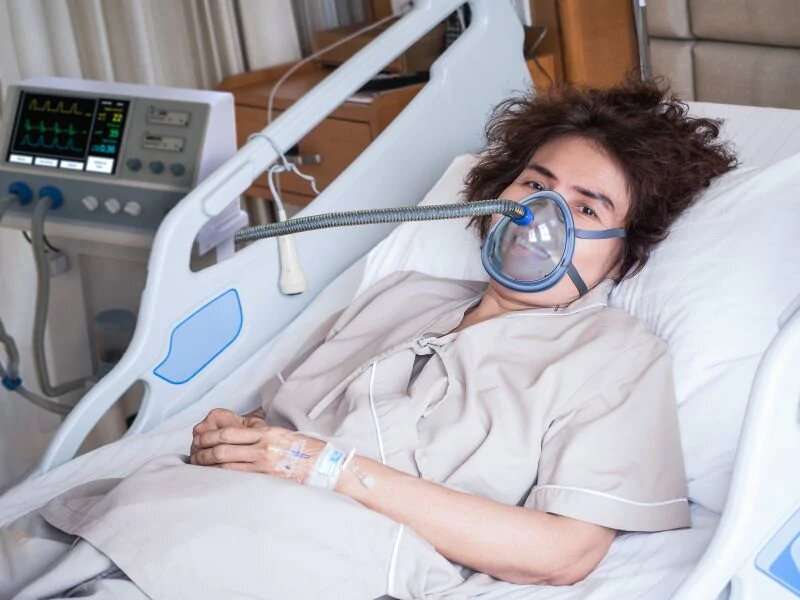COVID-19 patients rarely survive cardiac arrest, study says

(HealthDay)—Folks whose hearts stop due to a severe case of COVID-19 are very unlikely to leave the hospital alive, a new study shows.
Out of 54 patients at a Michigan hospital who suffered cardiac arrest while battling COVID-19, none survived their illness even though 29 were resuscitated by cardiopulmonary resuscitation (CPR), the researchers reported.
"I don't think we can say cardiac arrest is always fatal if you have COVID," said Dr. J. Randall Curtis, a professor of pulmonology with the University of Washington in Seattle, who was not involved in the study. "I think we can say in this setting of cardiac arrest and COVID, the chances of cardiac resuscitation working are very, very low."
Doctors had suspected prior to this study that saving a COVID-19 patient whose heart stops would be difficult, Curtis said. A previous report from China had similar results.
This sort of thing is common in other severe pulmonary diseases, with the problem coming not from the heart but from the lungs, Curtis said.
"Of patients who have COVID and progress to have cardiac arrest, most of the time that is a cardiac arrest that is occurring because their lung disease has gotten so severe that they aren't getting enough oxygen and their body is shutting down," Curtis explained.
Even if the heart is revived, it will continue to have to fight against a lack of oxygen from damaged lungs, Curtis said.
Curtis noted that of the 54 patients, 52 had a type of cardiac arrest called pulseless electrical activity, or PEA. In PEA, the heart is generating enough electricity to create a heart beat, but the heart muscle itself has given out and will not contract.
"PEA arrests have much worse hospital survival after an in-hospital cardiac arrest" than cardiac arrests caused by a dysfunction of the heart itself, Curtis said.
The researchers, Dr. Shrinjaya Thapa and colleagues at William Beaumont Hospital in Royal Oak, Mich., suggested that doctors might want to think twice before performing prolonged CPR on these patients, especially because the resuscitation process generates aerosols that may place health care personnel at a higher risk of contracting the virus.
Curtis agreed that CPR does increase the amount of virus in the air, but noted that most patients who are this ill with COVID-19 will already be in the intensive care unit and in isolation.
"I feel like if we're going to do CPR, the risk is relatively low for hospital workers, because personal protective equipment that is properly donned and doffed works," Curtis said.
These results, which were published online Sept. 28 in JAMA Internal Medicine, do highlight the need for doctors to have frank discussions with severely ill COVID-19 patients about their desires related to resuscitation, he noted. Curtis co-authored a commentary accompanying the research letter.
"It's really important for us to think ahead of time about whether we should really put patients and families through this," Curtis said. "Talking ahead of time is really important. Many patients with such low chances of meaningful survival wouldn't want to be put through this."
More information: The American Heart Association has more about cardiac arrest.
Copyright © 2020 HealthDay. All rights reserved.


















